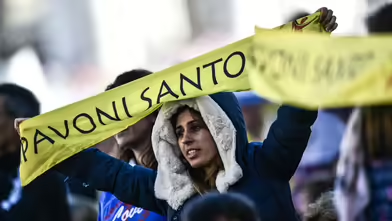Das Interview auf deutsch finden Sie hier.
DOMRADIO.DE: What do you know about the situation in Beirut?
Bishop César Essayan (Apostolic Vicar of Beirut): There is big confusion now, there are several versions of what happened. What really happened we don’t know exactly. For us it is very difficult to know, what will happen next. Was it an accident in the port of Beirut, or was it an isreali missile against Hezbollah? The consequences would be very different. That’s what most people are talking about at the moment. It’s not clear for any of us.
The second point is, that there are so many people dead, so many injured. We have many, that do not have a place to stay anymore. Beirut is devastated and we don’t know what to do. So many organisations are helping, providing hotel rooms outside Beirut, to receive the people. Convents, monasteries have opened their doors for the people. But they’re living in an uncertain situation. The coronavirus is a big problem, we are not facing anymore, because nobody cares enough about it. So many of our hospitals are destroyed as well. Now the time is to help the people, in any way. And then we see how to rebuild
DOMRADIO.DE: Have you heard from the people in your diocese? From the other christian denominations?
Essayan: No, not yet. Maybe there will be a declaration from the patriarch. But I know that all the churches and all the convents are looking for ways to help the people. Many of us also work in the hospitals, to help the people.
DOMRADIO.DE: What can you do as catholic diocese?
Essayan: We are seeing how to help to organize volunteers. The help we want to provide is any help. Anything the people need. Some have opened their kitchens and are preparing meals. Some are already involved with the priests and the sisters to clean the houses and the streets. Some of our churches have been devastated, others are trying to provide help, like clothes.
Everyone is doing something. It is not well organized yet, by the government. But I think the next days this will be more clear, but now we help however we can.
DOMRADIO.DE: Lebanon has been in turmoil politically as well, the last few months and years. Does this disaster hit your country especially hard now?
Essayan: Yes. It’s very hard now. Since the beginning of what we call the revolution on October, 17th last year, there is a lot of corruption. Nothing has been done against the corruption. It’s all the same people still in power in Lebanon. Now when something bad happens to all of us, we ask who is responsible. Some parties are looking to put the blame on others. But the corruption is everywhere. Not only in the government, in the state, but even in our mentalities.
That’s why it’s very difficult to come out of this. Last night everyone wanted to blame the government for the explosion, which is in office for a month now. Noone is asking the parliament for their responsibility, for their role all these years. That is a bad way to look at it, because now it’s not the time to ask who’s responsible. The government is working on it, so we have to wait for results.
When you live in a situation of political chaos you don’t know who you can trust and whose word you can believe. There are three or four versions of what supposedly happened yesterday. With social media everyone of us can put a voice in the world, saying they saw some planes, Israeli planes for example. You don’t know who you can believe. That is a major difficulty. We don’t have any faith in the people in our country. All the stories are contradictory right now, and that’s not the way we can assure our future.
DOMRADIO.DE: Do you ask people to pray?
Essayan: Yes. We need prayers. We need them because we need to have a clear mind today. That is not possible without coming back the prayer, without coming back to the purity of God. That’s very important. Right now everybody is talking, nobody is taking the time to look at our values at the meaning of our lives in Lebanon. But also prayer helps us to think of everybody without discrimination. Without saying this one is cristian or muslim, Lebanese or not. We need to overcome what separated the people until now. We need the prayer for both of these intentions.
The interview was conducted by Renardo Schlegelmilch.


